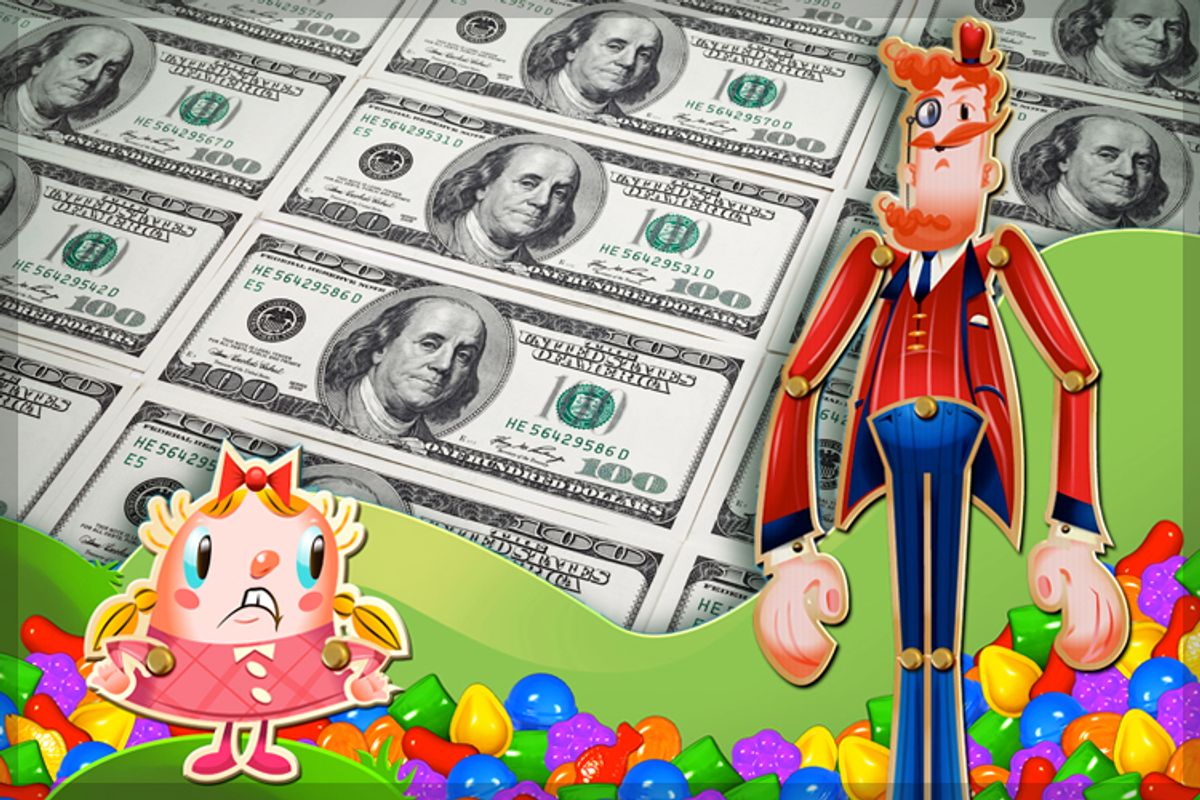I would like to think that if Karl Marx were alive today, he would recognize that mobile gaming is the new opiate of the masses. Who needs churches or priests to keep the proletarian masses distracted from their oppression when you can keep their attention fixed on the challenge of matching digital candies together on the small screen? Karl would have heard the news that King.com, the developer of "Candy Crush Saga" was shooting for an initial public offering (IPO) valuing the company at $7.6 billion and nodded. Total enthrallment of the working classes? Cheap at the price!
Let's take a trip through the reality-distortion field that is the current tech boom. "Candy Crush Saga" is an addictive pattern-matching puzzle game that is free to download to your phone. It is a trifle, a divertissement, a way to while away the minutes waiting for the bus or between subway stops. There's no way to sugarcoat this: The pleasure derived from "Candy Crush Saga" is more fleeting and superficial than the joy delivered from sucking on a Sweet Tart. There is nothing socially redeeming, or even interesting about the game.
Did I mention it was addictive? Yes, so much so that players of "Candy Crush Saga" will willingly pay for extra lives or other in-game assistance whenever they get stuck on hard levels or just can't stand the torment of being forced to wait a few minutes for new lives to spawn. The genius of "Candy Crush" is that once you've used up your available "free lives" the game actually restricts you from playing for an arbitrary period of time ... unless you pay up.
The strategy works: In 2013, King.com raked in over half a billion dollars in revenue from in-game fees. "Candy Crush Saga," therefore, only pretends to be free. It is, in fact, one of the most insidiously perfected machines for monetizing distraction and impatience ever invented.
If you're thinking that there's a metaphor at work here describing something essential to how the tech boom is metastasizing, congratulations -- you just made it to the next level! If all goes well with King.com's IPO, a company that pretends its main product is free will be worth billions of dollars.
But time is of the essence! According to Bloomberg News, "King’s average monthly unique players declined to 12.2 million in the three months to December from 13 million in the third quarter, according to the prospectus." The masses are already losing interest. King.com needs to get its IPO accomplished as fast as possible. When the current tech boom reaches its inevitable business cycle downturn, extra lives are going to get a lot more expensive.



Shares